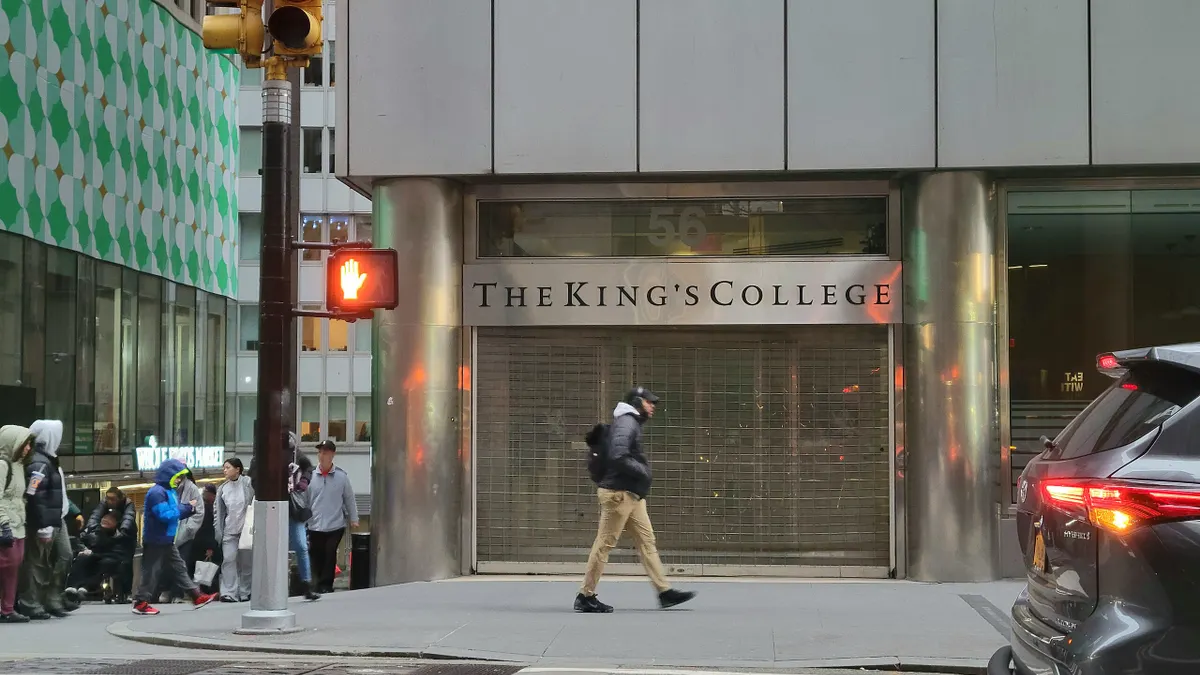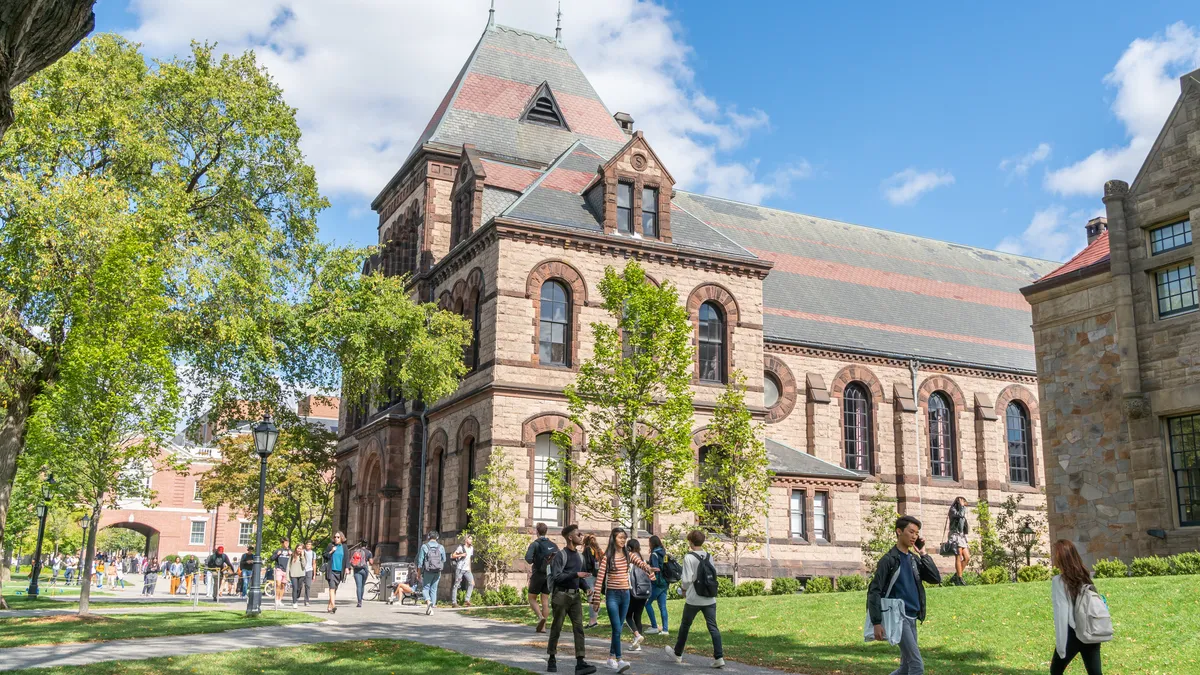The Department of Education recently debuted a pilot program to spur public and private partnerships benefiting workforce development, an unprecedented program which will pair colleges with for-profit companies to offer degrees and job training in select industries.
Viewed as a potential glimpse into the future of higher education, the partnership has a specific focus on tech and manufacturing training, but colleges and universities throughout the country have made significant headway in preparing graduates for workforce entry and success.
We spoke with officials from three of those institutions, Tuskegee University President Brian Johnson, Purdue University Homeland Security Institute Director J. Eric Dietz and University of Wisconsin Extension Dean of Continuing Education, Outreach and E-Learning David Schejbal, who discussed the vision behind pairing academic programs with industrial partners, structuring programs to meet workforce demand, and the future of industrial development in their respective regions, and throughout the nation.
EDUCATION DIVE: Can you talk about the importance of workforce development, specifically the pairing of academic programs with industrial needs of your city and state. What makes this a priority for your institution, and how do you target specific areas of impact?
BRIAN JOHNSON: I think workforce development ought to be one of an any institution's foremost set of priorities. It is one of the reasons why Tuskegee University lauds its 76% job placement rate among those who persist here at the institution until graduation. Considering that 2,100 of our 3,100 students are in STEM-related fields, Tuskegee University is uniquely positioned to to assist the region and state with both a diverse and credentialed, competent and comprehensively developed student well into the 21st century in areas such as Architecture and Construction, Veterinarian medicine, Agricultural Sciences, Engineering, Nursing and Occupational Therapy.
With respect to our immediate locale, (Tuskegee, Alabama, Macon County) which is one of the poorest cities, in one of the poorest states in America, the university feels and experiences the acute pressure to not only contribute to sustaining the area through employment for its citizens, but working to encourage many of our students to remain and attempt to re-build one of the most historically prosperous areas---many, many years ago--for African Americans that the world has ever seen.
DAVID SCHEJBAL: Workforce is certainly important for us in Wisconsin. Our big industrial areas are healthcare, IT and business, and we carefully do market research before launching a new program, so we have a good sense of where employers are, the size of the market and what the competition is in Wisconsin and nationally. We do a lot of due diligence before we develop programs, and that's why we have the program range that we have. Most of our online degrees are offered by multiple campuses in the system, and the student experience is fully online.
J. ERIC DIETZ: Working on a college campus, its like 2,200 small businesses in one place. The university had a couple of grants on smart cameras and electric grid research that had implications for our local automotive industry. I was approached by senior engineers at several automobile companies in the region, and they were interested in getting PhDs, not only for personal reasons, but to also aid in building the strength of their operations. They were looking for things that were mutually beneficial, namely, research resources like a library or other reference resources, and in turn, it helped us to create access to some of the laboratories and equipment they frequently use.
Our first two students are both full-time engineers, who entered with masters degrees and were interested in PhDs in advanced technology.
What are some of the best practices your institution has developed over the last five years, particularly as industry has changed, to make sure that graduates are work-ready upon leaving the institution? And how have you worked to establish direct institutional partnerships with industries in your region?
SCHEJBAL: We have focus groups of employers and advisory boards, with senior leaders in industry who advise us on their needs and expectations from our graduates. All of our students go through a capstone project where they have to demonstrate how they apply what they've learned in instruction, in practice. We try to make sure that our students are really ready for the job market once they leave us, and we have traditional and online semester-based programs and competency-based programs, where students can apply knowledge throughout the program.
On average, students complete a degree program in about 12-16 months, and all of our students are adult students with their biggest costs being divides between money and time, so they see this as a way to get through a program quickly. They are really designed for people who have industry experience.
DIETZ: We're also recruiting military officers to do their graduate work at Purdue. They are recruited from active duty, and we’re offering no tuition costs in exchange for getting them here and allowing us to help guide their defense-related research effort. We've had about 19 participants in this program over the last three years, and they bring a lot of domain specific knowledge, and just like our PhD pilot, they bring a lot of experience to our classrooms with their level of professional experience. And they learn from our younger students, so its a wonderful transfer of perspectives among our program participants.
JOHNSON: The university's College of Agriculture and Environmental Nutritional Sciences (CAENS) is perhaps the best example of this. This college through its long-standing support from the USDA, Mansato, the state of Alabama and as a 1890 land grant institution member, has been able to leverage monies that have been long earmarked for producing more students in the field of agriculture. Our students are in great demand because grantors are specifically investing in the college's ability to produce students who upon graduation can immediately enter into career opportunities throughout the state and the nation (including the federal government) as a result of funding that directly invested in student success for a future workforce.
How do you envision the future of some of the key industries in your region and throughout the country, and how will your university play a role in shaping that future?
DIETZ: I hope we’ll be able to see the overall benefit of productivity and sustainability, because we look at things from a learning and traditional teaching mission, with research, and outreach with industry. How can higher ed be an access to industry? From our perspective, it was also a good pilot to see how much time an adult learner, who already has credentials and a full-time job, would need to complete a degree in a program like this.
JOHNSON: Ironically, The Atlantic just published an article titled, "Poor and Uneducated; The South's Cycle of Failing Higher Education" that might be a clarion call for what southern institutions must do into order to be significant in 21st higher education. Another recent article in the Washington Post pointed out that nearly 40% of all American higher education institutions serve only 1000 or lest students while another 40% serve 5000 students or less leaving only 20% of American colleges and universities serving more than 5000 students.
To be clear, Tuskegee University possesses a distinctive value claim and advantage amongst the 80% of colleges and universities. First, the number of STEM-related students, (further strengthened by generous financial support for putting the "A," Arts, in STEM for university-wide STEAM.) Second, it's demonstrated ability of producing graduates from minority and Pell-grant receiving communities who are able to immediately impact workforce development in a number of disparate areas.Third, it is able to produce a more "comprehensively developed" student who is not merely trained in industrial fields, but in co-curricular areas such as leadership, social awareness and leadership. The institution's motto: "Knowledge, Leadership and Service" uniquely positions institutions like Tuskegee University for filling the vital needs of America both inside and the outside of the classroom.
SCHEJBAL: We've heard from employers that they are pleased with the quality of our graduates, and we have plenty of student success stories. We have personal relationships with industry leaders throughout Wisconsin, and we have a good relationships with Department of Ed, especially around competency-based education, and similar relationships with our accreditor (the Higher Learning Commission) to help in developing standards as its competency-based education is a relatively new approach to higher education.
















